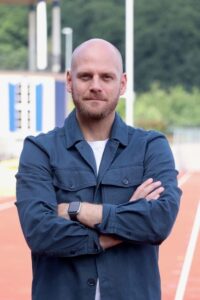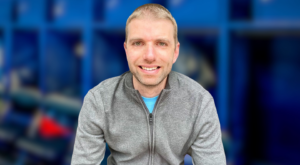You can read the full study here.
Tell us more about yourself and the author team.
Dr Carolina Lundqvist is an Associate Professor of Psychology and Sport Sciences and a Licensed Clinical Psychotherapist at Linköping University, Sweden. She heads the postgraduate Psychotherapist Programme, conducts research at the Athletics Research Center, and is the research coordinator of LiU Elite Sports, the dual-career program for elite athletes at Linköping University. Her research focuses on high-performance sports, mental health, safeguarding, sustainable elite sports careers, and psychological performance enhancement. Dr Lundqvist has extensive experience in sports psychology and clinical psychotherapy with elite athletes and has supported numerous athletes and coaches at the European and World Championships and the Olympic Games. She worked for many years as a sports psychology consultant and as the coordinator of the sport psychology support for the Swedish Olympic Committee. She is an adjunct member of the Medical Commission at Swedish Athletics and collaborates with elite clubs, sports federations and organizations nationally and internationally.

Jonas Wig is a licensed psychotherapist with a Master’s degree in sports psychology. He has worked in the field since 2008 and as a clinician since 2024. Jonas runs a clinic for clinical sports psychology with offices in Gothenburg and Stockholm. He has extensive experience working with elite and national team athletes, coaches, teams, and organizations on health, motivation, and performance issues.

Dr. David Schary is a Professor of Exercise Science at Winthrop University. He teaches and conducts research on sport psychology and health promotion. Dr. Schary is also the Director of Mental Health and Performance for Winthrop Athletics. In this role, he works with student-athletes to improve their performance and well-being. Additionally, he serves as the Parliamentarian for the South Carolina Counseling Association and heads a group for counsellors interested in working with athletes. Dr. Schary earned his Ph.D. in Exercise and Sport Science, with a concentration in Exercise and Sport Psychology, at Oregon State University. He completed an M.Ed. in Counseling and Human Development with a concentration in Clinical Mental Health Counseling and is a Licensed Professional Counselor – Associate. Before academia, Dr. Schary coached high school and college rowing. He rowed for four years at the University of California, Davis.

What is the story behind your study?
Working within elite sports, we have encountered many athletes facing a range of problems and challenges that relate to mental health. Often, athletes share their past experiences, both positive and negative, of seeking help for mental health issues from regional healthcare, clinics specializing in sports, or mental health professionals in private practice. Given the limited knowledge about psychotherapy in elite sports, this study aimed to explore the factors athletes perceive as contributing to the effectiveness of psychotherapy.
In your own words, what did you find?
Elite athletes appreciate psychologists and psychotherapists who possess strong communication skills, work towards clear and evaluable goals, and adopt a holistic approach to the athlete’s problems. The study underscores the significance of professionalism, structure, adaptability, and the importance of the alliance and trust between the athlete and the psychologist/psychotherapist. A psychotherapist’s knowledge of elite sports facilitates addressing both sports-related and non-sports-related mental health issues, which can individually or collectively impact the athlete’s well-being.
The study also reveals that athletes struggle to differentiate between various professionals who market themselves as mental health experts and offer different forms of support. Some participants described ending up with “mental coaches” or sports psychology consultants who primarily focused on sports when they actually needed a clinically trained psychologist or psychotherapist. This mismatch risks preventing the athlete from receiving the appropriate treatment and potentially worsening their condition.
Finally, we discuss sports organizations’ responsibility to facilitate athletes’ access to qualified mental health professionals and to systematically evaluate and ensure the quality of the mental health services provided.
What was the main challenge you faced in your study?
The biggest challenge of the study was recruiting participants. The process was slower and more time-consuming than expected. Recruitment was conducted through, for example, social media advertising, contacts with psychological clinics, sports clubs, players’ associations, league associations, sports federations, and other sports organizations. The experience from this recruitment effort was that few organizations are willing to assist in contacting or distributing information to relevant athletes, and athletes can be hesitant to discuss this topic. This highlights the potential impact of stigma surrounding mental health concerns in elite sports, both from an individual and organizational perspective.
If there is one take-home message from your study, what would that be?
The study underscores the importance of addressing the whole person in psychotherapy, acknowledging both the person and the elite athlete. Mental health challenges can stem from both sporting and non-sporting aspects of life. Effective psychotherapy is enhanced when therapists, alongside their clinical expertise, also have knowledge of sports and elite sports, fostering trust and professionalism.